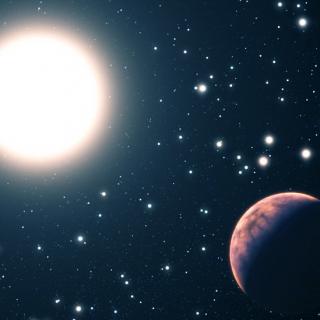Bibcode
Sousa, S. G.; Adibekyan, V.; Delgado-Mena, E.; Santos, N. C.; Andreasen, D. T.; Ferreira, A. C. S.; Tsantaki, M.; Barros, S. C. C.; Demangeon, O.; Israelian, G.; Faria, J. P.; Figueira, P.; Mortier, A.; Brandão, I.; Montalto, M.; Rojas-Ayala, B.; Santerne, A.
Referencia bibliográfica
Astronomy and Astrophysics, Volume 620, id.A58, 13 pp.
Fecha de publicación:
11
2018
Revista
Número de citas
74
Número de citas referidas
72
Descripción
Context. Exoplanets have now been proven to be very common. The number
of its detections continues to grow following the development of better
instruments and missions. One key step for the understanding of these
worlds is their characterization, which mostly depend on their host
stars. Aims: We perform a significant update of the Stars With
ExoplanETs CATalog (SWEET-Cat), a unique compilation of precise stellar
parameters for planet-host stars provided for the exoplanet community.
Methods: We made use of high-resolution spectra for planet-host
stars, either observed by our team or found in several public archives.
The new spectroscopic parameters were derived for the spectra following
the same homogeneous process (ARES+MOOG). The host star parameters were
then merged together with the planet properties listed in exoplanet.eu
to perform simple data analysis. Results: We present new
spectroscopic homogeneous parameters for 106 planet-host stars.
Sixty-three planet hosts are also reviewed with new parameters. We also
show that there is a good agreement between stellar parameters derived
for the same star but using spectra obtained from different
spectrographs. The planet-metallicity correlation is reviewed showing
that the metallicity distribution of stars hosting low-mass planets
(below 30 M⊕) is indistinguishable from that from the
solar neighborhood sample in terms of metallicity distribution.
Based on observations collected at the European Organisation for
Astronomical Research in the Southern Hemisphere under ESO programs
096.C-0092, 097.C-0280, 098.C-0151, and data obtained from the ESO
Science Archive Facility under several requests (request numbers
273579-274977).Tables A.1-A.3 and the catalog are also available at the
CDS via anonymous ftp to http://cdsarc.u-strasbg.fr
(ftp://130.79.128.5) or via http://cdsarc.u-strasbg.fr/viz-bin/qcat?J/A+A/620/A58
Proyectos relacionados

Pruebas Observacionales de los Procesos de Nucleosíntesis en el Universo
Recientemente se han llevado a cabo varios análisis espectroscópicos de estrellas con planetas. Uno de los resultados más relevantes ha sido descubrir que las estrellas con planetas son en promedio más metálicas que las estrellas del mismo tipo espectral sin planetas conocidos (Santos, Israelian & Mayor 2001, A&A, 373, 1019; 2004, A&A, 415, 1153)
Garik
Israelian